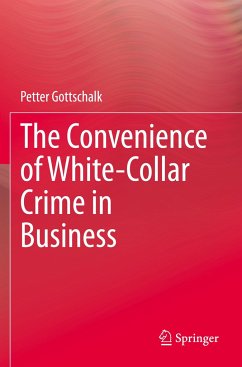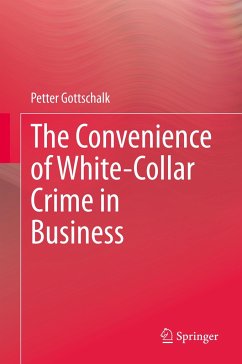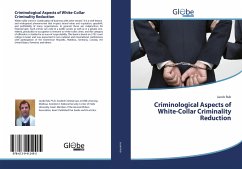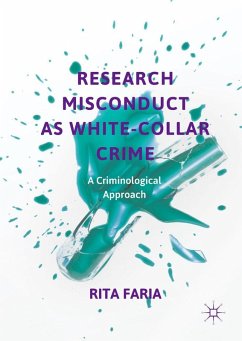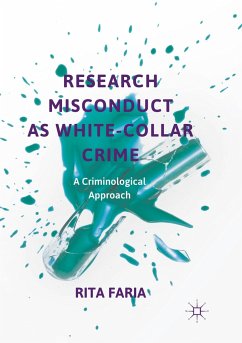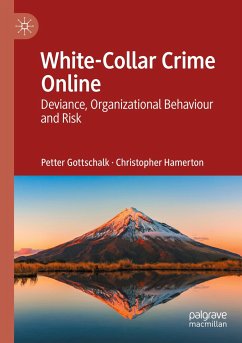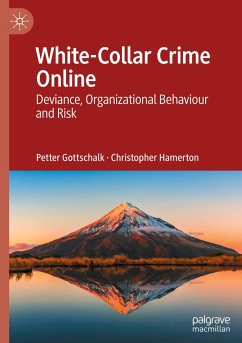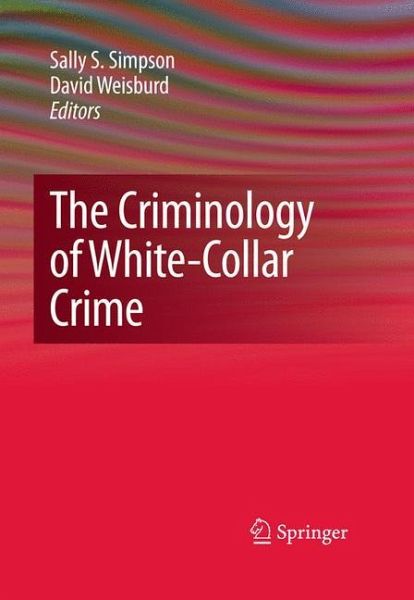
The Criminology of White-Collar Crime
Versandkostenfrei!
Versandfertig in 6-10 Tagen
113,99 €
inkl. MwSt.

PAYBACK Punkte
57 °P sammeln!
- The book will synthesize and integrate better what are often disparate ideas, themes, and methods across substantive areas of white-collar crime and criminology and criminal justice.
- The book also puts together critical and emerging topics within criminology and criminal justice that have important implications for the study of white-collar crime and criminology/criminal justice more generally.
- The book also puts together critical and emerging topics within criminology and criminal justice that have important implications for the study of white-collar crime and criminology/criminal justice more generally.
Over the last few decades, interest in white-collar crime has tended to take a back seat to "street" offenses in terms of theory and research. In response, and reflecting the rising general interest in business and middle/ upper class lawbreaking, The Criminology of White-Collar Crime brings the study of white-collar offending back into the criminology mainstream, analyzing why members of higher social strata resort to criminal activity and offering psychosocial, life course, methodological, and prevention perspectives. Leading scholars expand on the pioneering work of Edwin Sutherland, delving into the variables, situations, and cultural contexts that differentiate white-collar crime from more traditional criminal areas as well as into those that coincide with them.
This book asks not only how the study of white-collar crime can enrich our understanding of crime and justice more generally, but also how criminological advances over the last few decades can enhance our understanding of white-collar criminality. To that end, the volume brings together a distinguished group of criminologists, drawn from leaders in the study of white-collar crime as well as important scholars that have advanced criminology more generally and that turn their attention to the problem of white-collar crime for this book.
This book asks not only how the study of white-collar crime can enrich our understanding of crime and justice more generally, but also how criminological advances over the last few decades can enhance our understanding of white-collar criminality. To that end, the volume brings together a distinguished group of criminologists, drawn from leaders in the study of white-collar crime as well as important scholars that have advanced criminology more generally and that turn their attention to the problem of white-collar crime for this book.






